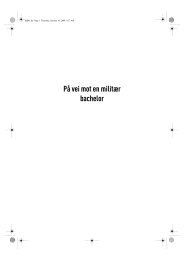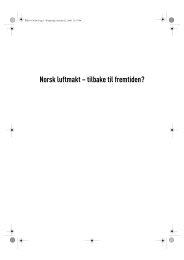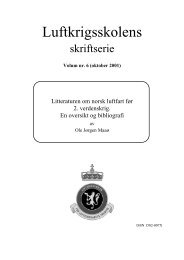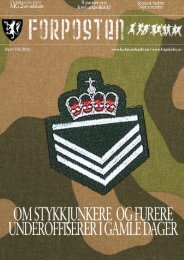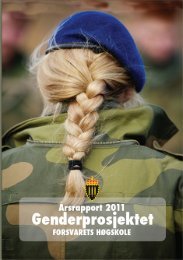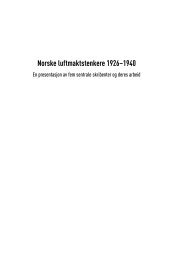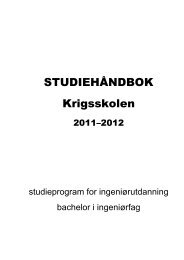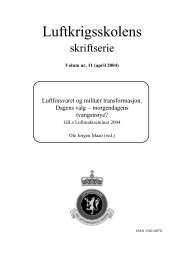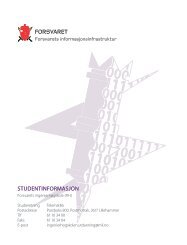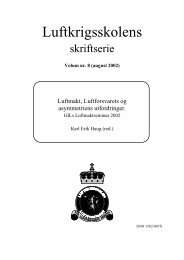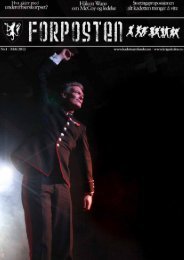Wilhelm Mohr
Wilhelm Mohr
Wilhelm Mohr
Create successful ePaper yourself
Turn your PDF publications into a flip-book with our unique Google optimized e-Paper software.
PART IV – 9 April – From the Past to the Future<br />
we now know, Parliament chose not to indict the Government. In C.<br />
J. Hambro’s words: ’they did the best they could. In that lies their excuse,<br />
and in that lies their sentence’. The issue at hand was quite simply that<br />
the Government, as far as the general population was concerned, had<br />
gradually contributed adequately; it was a time to stop looking back<br />
and a time to look forward. In any case, the liberation seemed to<br />
unplug a sense of ’go ahead’ spirit and optimism that called upon formidable<br />
forces. The Labour Party was able to stay at the helm. There<br />
was plenty to do, but everything was run down, and it may be useful<br />
to remember the Marshall Plan aid that helped us through the initial<br />
hardships.<br />
The Armed Forces received their share of attention, despite the fact<br />
that few could envision a conflict situation in the near future. Perhaps a<br />
degree of guilty conscience contributed to this, but also the fact that the<br />
Armed Forces acquired an authoritative political leadership. Further,<br />
our recent experiences had fortified recognition of the Armed Forces’<br />
stature and roots in our society. The sense of an overall unity among<br />
the political and military leadership structure was strengthened, among<br />
other things through a common intelligence service. We became familiar<br />
with the concept of ’total defence’, 39 with its elements of society’s<br />
readiness for crisis and war, and in that way assisted in a more thorough<br />
and lengthy political decision-making process. We were able to keep<br />
our system of conscription. We gained our Home Guard and various<br />
defence-supportive organizations, such as Folk og Forsvar, Kvinners<br />
Frivillige Beredskap, Norges Forsvarsforening, and Norges Lotteforbund.<br />
However, the sense of the ’cloudless sky’ or ’we do not have any<br />
enemies’ did not last for long. Soon, the tense situation following the<br />
Soviet Union’s march into Czechoslovakia arose. Norway picked up the<br />
ties woven during WWII and joined the Western defence organisation<br />
NATO. We had our very own Royal Resolution of 10 June 1949: ’Directives<br />
for military personnel and military commanders if an armed<br />
39 In Norwegian: ’Totalforsvar’.<br />
111



